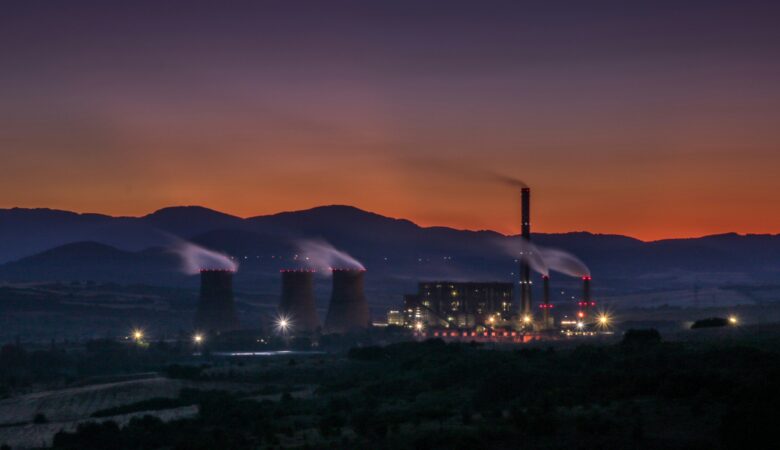Energy efficiency in buildings is a critical issue in Nigeria, where energy demand often outpaces supply. The need to optimize energy use in residential, commercial, and industrial buildings is both a challenge and an opportunity for sustainable development. Rhinobay Energy is committed to addressing these challenges through innovative solutions that promote energy efficiency, reduce costs, and enhance environmental sustainability.
The Challenges of Energy Efficiency in Nigeria’s Buildings
1. Lack of Awareness and Education
One of the primary challenges to energy efficiency in Nigeria’s buildings is the general lack of awareness and education about the importance and benefits of energy-efficient practices. Many building owners, architects, and developers are not fully informed about energy-efficient designs, technologies, and materials, leading to suboptimal energy use in buildings.
Rhinobay Energy is actively working to bridge this knowledge gap by offering educational programs and resources that promote energy-efficient practices in building design and construction. By raising awareness, Rhinobay Energy aims to foster a culture of energy efficiency across Nigeria.
2. Inadequate Regulations and Enforcement
Nigeria’s regulatory framework for building energy efficiency is still in its infancy. While there are guidelines and standards for energy-efficient buildings, enforcement is often weak, and compliance is not always mandatory. This lack of stringent regulations makes it difficult to achieve widespread adoption of energy-efficient practices.
Rhinobay Energy advocates for stronger regulations and enforcement mechanisms to ensure that energy efficiency is prioritized in building projects. The company is also leading by example, incorporating energy-efficient designs and technologies in its own projects to demonstrate the benefits of compliance.
3. High Initial Costs
The upfront costs of implementing energy-efficient technologies and materials can be a significant barrier for many building owners and developers. Energy-efficient lighting, insulation, windows, and HVAC systems often require higher initial investment compared to conventional alternatives, which can deter adoption, especially in a market where access to finance is limited.
Rhinobay Energy is addressing this challenge by offering flexible financing options and incentives for energy-efficient upgrades. By making these investments more accessible, Rhinobay Energy is helping to overcome the financial barriers to energy efficiency.
4. Limited Availability of Energy-Efficient Products
The availability of energy-efficient products and technologies in Nigeria is often limited, with many items needing to be imported at high costs. This scarcity can hinder the widespread adoption of energy-efficient solutions, as it increases the overall cost and complexity of implementing these technologies.
Rhinobay Energy is working to expand the availability of energy-efficient products in Nigeria by partnering with global manufacturers and suppliers. These partnerships help to bring affordable, high-quality energy-efficient technologies to the Nigerian market, making them more accessible to consumers.
The Opportunities of Energy Efficiency in Nigeria’s Buildings
1. Cost Savings
One of the most significant opportunities presented by energy efficiency in buildings is the potential for cost savings. Energy-efficient buildings consume less power for heating, cooling, lighting, and other operations, leading to lower utility bills for owners and tenants. Over time, the savings on energy costs can offset the initial investment in energy-efficient technologies.
Rhinobay Energy is helping businesses and homeowners realize these cost savings by providing energy audits, recommendations, and implementation services for energy-efficient upgrades. The company’s expertise ensures that clients maximize their return on investment while reducing their energy consumption.

2. Environmental Benefits
Improving energy efficiency in buildings can significantly reduce greenhouse gas emissions, contributing to Nigeria’s climate change mitigation efforts. Energy-efficient buildings use less electricity, which reduces the demand for power generation from fossil fuels, thereby lowering carbon emissions.
Rhinobay Energy is committed to environmental sustainability and is driving initiatives that reduce the carbon footprint of buildings in Nigeria. By promoting energy efficiency, Rhinobay Energy is helping to create a cleaner, greener environment for future generations.
3. Enhanced Building Performance and Comfort
Energy-efficient buildings offer improved comfort for occupants, with better temperature control, air quality, and lighting. These enhancements not only improve the quality of life for residents but also increase productivity in commercial and industrial settings.
Rhinobay Energy’s projects incorporate state-of-the-art energy-efficient technologies that enhance the performance and comfort of buildings. Whether it’s through advanced HVAC systems, insulation, or lighting, Rhinobay Energy is setting new standards for building performance in Nigeria.
4. Job Creation and Economic Growth
The push for energy efficiency in Nigeria’s buildings presents significant opportunities for job creation and economic growth. As the demand for energy-efficient buildings increases, so does the need for skilled labor in areas such as construction, engineering, and energy management. This can lead to the creation of new jobs and stimulate economic activity in related industries.
Rhinobay Energy is playing a pivotal role in driving this growth by investing in training programs that equip workers with the skills needed for energy-efficient building projects. By supporting job creation, Rhinobay Energy is contributing to the broader economic development of Nigeria.
Conclusion
Energy efficiency in Nigeria’s buildings presents both challenges and opportunities. While the lack of awareness, inadequate regulations, high initial costs, and limited availability of products pose significant obstacles, the potential benefits in terms of cost savings, environmental impact, enhanced building performance, and job creation are immense. Rhinobay Energy is at the forefront of addressing these challenges and harnessing the opportunities, driving a more energy-efficient and sustainable future for Nigeria. Through its innovative solutions and commitment to excellence, Rhinobay Energy is helping to transform Nigeria’s building sector into one that is both economically and environmentally sustainable.















Leave a Reply